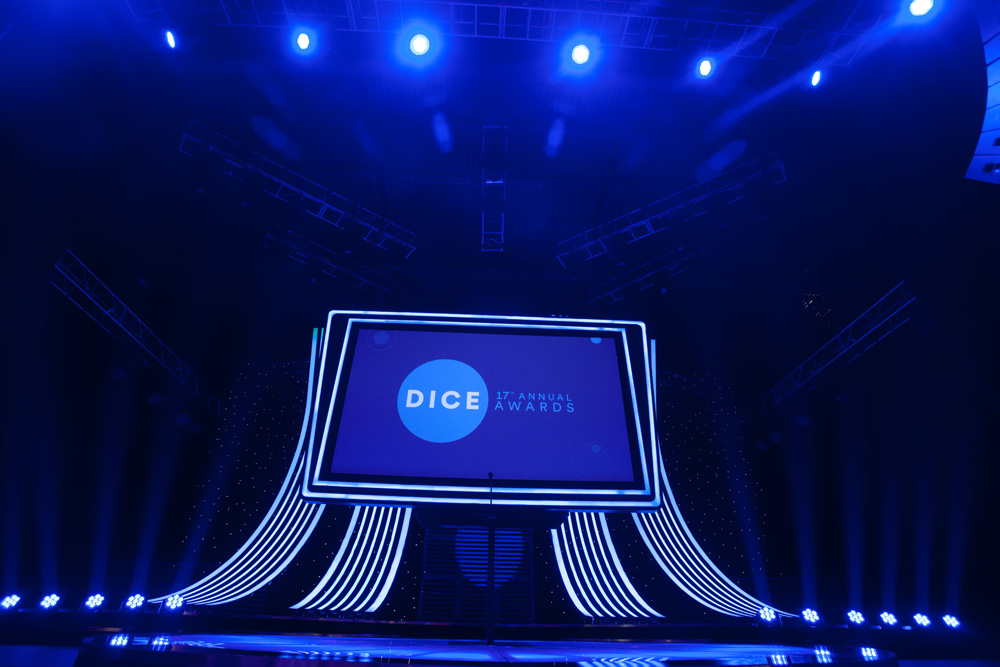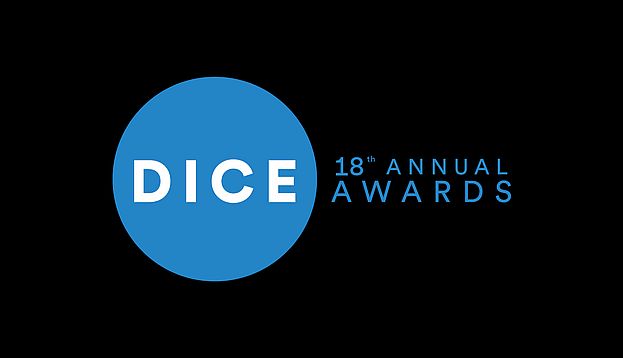The Academy of Interactive Arts & Sciences (AIAS) was founded in 1996 to help the advancement and recognition of the interactive arts, and one of the prime ways the Academy does that is through the prestigious D.I.C.E. Awards. These awards, voted on by the more than 30,000 members of the Academy, are delivered at the annual D.I.C.E. (Design, Innovate, Communicate, Entertain) Summit taking place every year in Las Vegas.
The Summit brings together top game designers and business leaders to discuss the state of the industry, and provide some quality time for networking and celebrating the accomplishments of the gaming industry during the past year. The Summit culminates in the 18th Annual D.I.C.E. Awards on Thursday night.
The [a]listdaily spoke with AIAS president Martin Rae about the D.I.C.E. Summit, the D.I.C.E. Awards, and what they mean to the game industry.
 Martin Rae
Martin Rae
How has the DICE summit changed over time?
In two major ways, I’d say. When anything starts, it starts smaller — it’s certainly grown. It’s a pretty amazing production, big enough to put in all the bells and whistles and small enough to be intimate, so if you are an attendee you can get together with people you want to. I’d say it’s matured a great deal. Secondly, it’s changed with the industry. In the past, people really pointed to us and said “you’re very console and PC centric; are you looking towards the future of the game business in mobile and free-to-play ” We’ve evolved with the industry. We’ve tried to look towards the future and get people on stage and in the room who are looking at different platforms, looking at different ways to do business. Innovative ways, not just technically, whether it’s organizationally or community-management wise. How can they grow the business in a healthy way, both for games and for business I think it’s mirrored the industry as the industry’s changed.
What are the important trends that are influencing DICE, and that will be influenced by the DICE Summit?
There are three different ways. I always like to look to the future, and I try to challenge speakers to take some risks, look to the future, use your experience and anecdotes from the past to answer the questions where are we going, what can we learn, and how can we get to a better place whether it’s development-wise or business-wise. With those people on stage, attendees end up learning a lot of things. We have been really focused on trying to get independent studios, young game makers with great ideas both on the stage and in the audience.
I don’t think you necessarily have to be on stage to have an extraordinary experience. Young game makers can come in and hear the talks, and get some face time with people that maybe they admire or maybe they disagree with, somebody they can learn something with — and they get face time with those folks. We’ve really tried to mix it up — pull in the young game makers and some people who have seen the cycles, and really create a Petri dish where everybody gets to learn something. You come out at the end of the week feeling energized, everybody’s had some fun, celebrated the great accomplishments of the past year at the awards show, and hopefully made some new relationships and partnerships that pay dividends down the road.
This year is the 18th annual D.I.C.E. Awards. How important have these awards been to the industry, and how do you see their influence changing going forward?
I’m really product of the awards, and I think it’s really good for the industry. As you know, there are lots of awards and many kinds of awards shows, but there is only one with a peer body of our size, over 30,000 people all involved in the game business. Much like the Motion Picture Academy, they are the ones who get to vet and choose what they think are the best of the best. I think that has a tremendous amount of value for the industry.
Some people might say we don’t have the marketing glitz and glamour of some other shows, but from an integrity perspective, and the process of peers rewarding peers, there’s no higher honor. I think that’s pretty phenomenal, and it’s great for the industry. Long term I think the Academy will only improve with age. Part of that is the process in how we approach things. We always have to evolve with the industry as well, massage our awards categories to reflect what’s going on in the business today. One of our new categories in the awards this year we call the D.I.C.E. Sprite Award, to recognize great games that come out of shops that don’t have a AAA budget, but have done some extraordinary things. We don’t want to have new ideas and the birth of new things lost among bigger products.

Also this year we have our first Technical Impact award, which is going to the Apple App Store. That’s had a profound impact for creators, self-publishers, and consumers. That’s akin to the sci-tech awards from the Motion Picture Academy. We’ll be delivering a number of those awards over the next year or two for early successes that really helped set the foundation for success in this business.
The cool thing about this is we’re reaching the point where we’re not restricted technically any more. If you come up with a great idea you can execute it in our industry, and that’s really extraordinary.
The game industry has grown and changed tremendously since the D.I.C.E. Awards began, and the audience of gamers is now far larger. How do you get the message out about the awards, and how should they be perceived?
That’s a great question. It’s a big challenge — it’s how you educate the gameplaying community about the Academy and the Awards and the importance of them, and get them involved. We looked at a couple of different approaches. Our main demographic is not a TV-consuming demographic, it’s really an Internet-focused demographic, so we stream live. We get a lot of people watching the talks in the Summit, even business people outside of the game industry. We’ll be on the front page of Twitch and we’ll stream that out live. We communicate through business press, industry press, consumer press, try to educate people about the Awards and draw that audience in.
We have a partnership with Variety that reaches a different segment, it’s a business/entertainment segment. Some of the sessions will go out through Variety’s YouTube channels, post-show. They do a great job of promoting it. On the ground we’ll have a number of press outlets who aren’t necessarily focused on the game business that will be writing about this as well. That’s a challenge for the next phase of the Academy’s life — bringing in the new game folks, letting them know who we are, and why this is important.
What will be the important trends in game design for the next few years?
The real point of this year, in my opinion, is it all stems from community involvement and the whole online aspect of people playing with each other all over the planet. Game designers and developers are really devising some cool ways to have you participate in the environment they create, but to play and create your own outcome and do that organically. I think we’re going to see a ton of that. And a whole lot of the community influencing where the game design goes. You end up with the brilliant game designers being able to create the playpen for this great crowd-sourced experience where they produce great ideas and the get to seed each other. That will really drive experiences that we haven’t seen before, really rich experiences.

